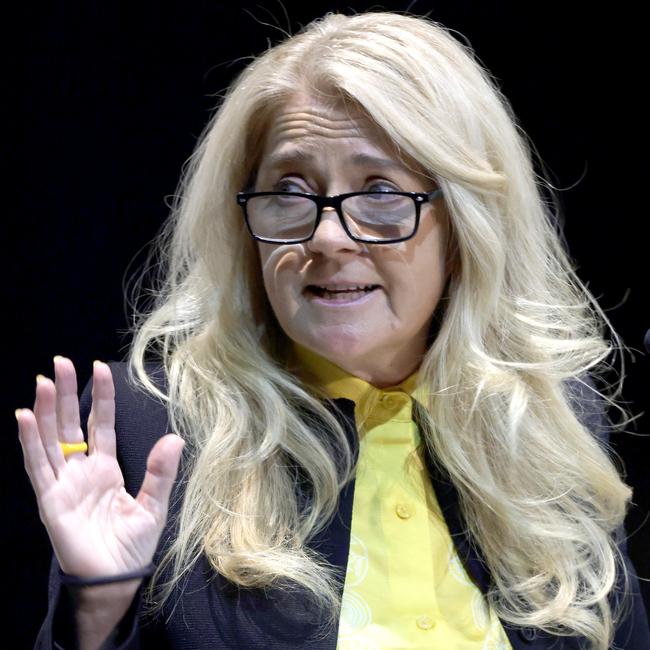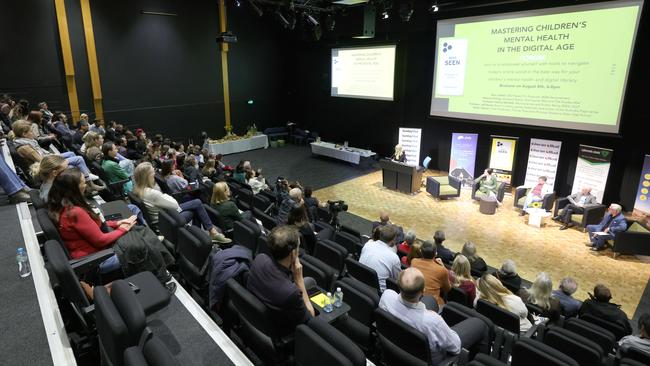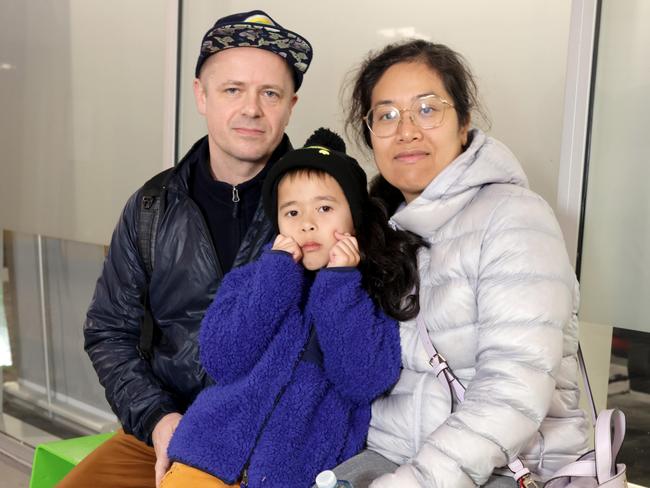Still face syndrome hits children raised on digital devices
There are fresh concerns over children getting too much screen time, with an expert unmasking the truth.
Lifestyle
Don't miss out on the headlines from Lifestyle. Followed categories will be added to My News.
Children exposed to too much screen time are being left behind developmentally, with many not learning to use their facial expressions.
The phenomenon, dubbed “still face syndrome”, was one of many hazards raised at a forum on Thursday night, where hundreds of Queensland parents gathered to learn how to best protect their children in the digital age.
Professor Selena Bartlett, a neuroscientist and author of Being Seen, a guide for parents in the digital age, warned children were being exposed to online risks at ever younger ages.
“There are a large number of ways to get access to children online in 2024, which has made it very unsafe for children on smart devices compared to 2023,” she said.
“Smart devices have all types of social media, and places have the ability for people to contact children.
“There are over 100 ways to get to children now, and no one is paying attention.”
Prof Bartlett said in addition to external dangers of the digital age and social media, young children were developing “still face syndrome”.
“Instead of the parent face they are replacing it with a phone, so it means they are not learning to use facial expressions,” she said.

“We are a social species and we learn that from each other by face-to-face interactions, especially early on in baby development.”
Prof Bartlett said many parents felt there was no support or help when deciding whether to allow their children access to smart devices.
“Everyone is doing it and they want their children to feel like they belong,” she said.
“We have seven-year-olds with eating disorders and we have five-year-olds on porn sites.”
The forum comes amid a News Corp Australia campaign Let Them Be Kids, which is calling for children under 16 to be restricted from having social media accounts.
First-time parents Jane Duong and Sam Fitzgibbons attended the event with their son Noah, 7.
Ms Duong said they wanted to know more about what they should do when it came to allowing their child online.
“It’s quite important to know what we should do,” Ms Duong said.
“We try to limit the time he spends on his iPad generally just give him the TV, because we found it’s less stimulating.”
Natalie and Craig Latimer from Birkdale have two children, a boy, 14, and daughter, 5, and said it was a stressful time for kids in the digital age.

“With a four-year-old growing up it’s a really stressful time,” Ms Latimer said.
“And I think a lot of peer pressure and uncertainty around what social media looks like for this generation, it’s not something we grew up with.”
Single parent Anne Unwin, of Clontarf, said neither her son, 11, or daughter, 8, used social media.
“They are both not on social media yet, but generally speaking I am very concerned about them starting to use social media and just want to learn more about the impact,” Ms Unwin said.
“Rather than excluding them from it, teaching them ways of handling it.”
Ms Unwin said her children had access to laptops and iPads, and she monitored their usage online.
“They use the laptop and the iPad, and the switch where they can play games and potentially connect with people,” she said.
“We do talk regularly about what’s private information and how we don’t give out real name and addresses and phone numbers.
“I still have a password that I have to type in before they actually can friend someone.”

A video was shared with attendees of a lawyer setting up a test account on Snapchat, on a brand new phone, and identifying as a 16-year-old girl.
In the video the account was then recommended friends by Snapchat, and was bombarded with explicit content.
The video showed viewers how Snapchat could recommend “friends” and expose children to harmful content.
Sam Jockel, CEO of parent TV and mother of a 16-year-old and 14-year-old, said our children need us.
“They need our attention, and it’s actually everything,” Ms Jockel said.
“The biggest protective factor for your kids is actually your time and attention.”
Former Brisbane State High School executive principal Wade Haynes was one of the hosts of the event.
“I think the big idea around it takes a village to raise a child, and this is an opportunity for parents to ask questions, and the responsibility we have and help share some of those expertise with parents,” Mr Haynes said.
“I think (children) are part of this and they are the target and we want the best for them for the future. This is about how we work together to make that happen.”




